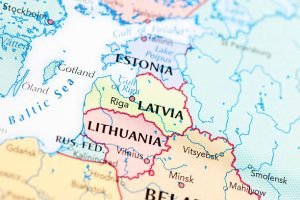All about Russia’s Rich Traditions and Culture: A Fascinating Dive into a Unique World
Russia boasts a rich and diverse culture with centuries-old traditions. From its fascinating history and unique blend of Eastern and Western influences to its vibrant festivals and renowned arts, Russia offers a captivating glimpse into a world unlike any other. Explore the wonders of Russian cuisine, immerse yourself in the beauty of its natural and cultural attractions, and marvel at the country’s notable achievements in science and technology. Dive into the captivating realm of Russia’s traditions and culture.
If you want to find good Russian women personals take a look at this dating site
Exploring the Rich History of Russia
Russia’s history is an intriguing tapestry of civilizations, dynasties, and revolutions that have shaped the nation into what it is today. From ancient times to the modern era, Russia has undergone significant transformations and witnessed the rise and fall of powerful empires. Let’s delve into the fascinating chronicles of Russia’s rich history.
From Ancient Rus to the Russian Empire
The history of Russia traces back to the establishment of the ancient state of Rus, centered around Kiev. This early period saw the emergence of medieval principalities and the adoption of Christianity from Byzantium, forging close cultural ties with the Orthodox faith. The Mongol invasion in the 13th century left a lasting impact, leading to the rise of the Grand Duchy of Moscow, which eventually became the nucleus of the Russian Empire.
With the reign of Ivan the Terrible, Russia expanded its territories and consolidated its power. The Romanov dynasty came into power in the 17th century and established a centralized autocracy that persisted for centuries. The Russian Empire reached its zenith under Peter the Great, who initiated extensive reforms and modernized the country.
The Soviet Era and Modern Russia
The 20th century marked a tumultuous period in Russian history. The Russian Revolution of 1917 ushered in the Soviet era, led by the Bolsheviks under Vladimir Lenin. The Soviet Union emerged as a global superpower, promoting socialist ideology and undergoing rapid industrialization. The leadership of Joseph Stalin brought both industrial progress and widespread repression.
After the collapse of the Soviet Union in 1991, Russia entered a new phase of its history as the Russian Federation. It faced challenges during the transition to a market economy and the establishment of a democratic system. Today, Russia is a prominent player on the global stage, embracing its historical legacy while looking towards its future.
The Cultural Diversity of Russia
Russia’s cultural diversity is a testament to the country’s vast geography and unique blend of Eastern and Western influences. The traditions and customs deeply rooted in Russian society showcase the preservation of ancient beliefs and practices, making Russia truly one of a kind.
Influence of Eastern and Western Traditions
The amalgamation of Eastern and Western traditions has shaped the cultural heritage of Russia. The country’s location spanning both Europe and Asia has fostered a rich exchange of ideas, customs, and artistic styles throughout history. Russian culture seamlessly incorporates elements from both traditions, resulting in a fascinating blend that sets it apart from other nations.
In case you are looking for a reliable marriage agency in Russia take a look here.
From Eastern influences, Russia embraces elaborate rituals and practices that reflect the country’s spiritual and mythical connections. Pagan traditions, such as celebrating the changing seasons and revering nature, continue to be intertwined with everyday life.
On the other hand, Western influences have influenced Russia through its interactions with European countries. The introduction of Christianity in the 10th century and subsequent cultural exchanges with European powers brought new customs, architectural styles, and artistic movements to Russian society.
Religious Beliefs and Practices in Russia
Religion has always played a significant role in Russian life, with the majority of the population following the Russian Orthodox Church. This ancient Christian denomination has shaped the country’s customs, arts, and societal values over the centuries.
Besides Orthodox Christianity, other religions have also found a place in the cultural fabric of Russia. Islam, practiced primarily by ethnic groups such as Tatars and Bashkirs, coexists and contributes to the diverse religious landscape of the country. Additionally, indigenous beliefs influenced by animism and shamanism, known as tengrism, are present among certain ethnic groups.
Religious celebrations in Russia are marked by fervor and symbolism. Orthodox Christian festivals, such as Easter and Christmas, are widely observed with church services, processions, and special meals. These holidays bring families and communities together to honor their faith and traditions.
Throughout the year, various regional and local traditions associated with religious beliefs create a colorful tapestry of customs. From the solemnity of Epiphany dips in freezing waters to the vibrant May Day parades, these traditions reflect the cultural depth and diversity found within Russia.
Celebrating Russian Festivals and Holidays
Embark on a journey through the vibrant festivities and cultural traditions that Russia has to offer. From Orthodox Christian celebrations to traditional folk customs and mesmerizing wedding rituals, the Russian calendar is filled with joyous occasions that reflect the country’s rich heritage.
Orthodox Christian Festivities: Easter and Christmas
Experience the spiritual significance and timeless traditions of Orthodox Christian holidays in Russia. Easter, the most important celebration in the Russian Orthodox Church, is a time of joy and renewal. Witness the grand processions, attend midnight church services, and marvel at the beautifully decorated eggs known as pysanky.
Christmas in Russia, observed on January 7th, is a magical time embraced with deep religious devotion. Immerse yourself in the enchanting atmosphere of Christmas liturgies, adorned palaces, and intricately crafted nativity scenes. Discover the unique blend of Christian traditions and ancient pagan rituals that make Russian Christmas truly extraordinary.
Traditional Folk Celebrations: Maslenitsa and Ivan Kupala
Delve into the world of traditional Russian folk celebrations and experience the joy and exuberance of Maslenitsa, the Pancake Week festival. Join in the festivities as people indulge in delicious blinis, engage in friendly outdoor games, and witness the burning of the effigy symbolizing the end of winter and the arrival of spring.
Celebrate Ivan Kupala, a pagan-inspired summer solstice festival, and embrace the mystical customs, bonfire rituals, and flower wreath traditions that honor nature’s rebirth. Experience the enchanting spectacle of young girls floating their wreaths on rivers, symbolizing their hopes and dreams for love and happiness.
Wedding Customs and Traditions in Russia
Discover the unique wedding customs and traditions that vary across Russia’s diverse regions. From the elaborate ceremonies and lavish feasts to the symbolic rituals and folk performances, Russian weddings are a fascinating blend of old and new traditions. Witness the solemnity of the church ceremony, listen to traditional wedding songs, and join in traditional dances that express joy and unity.
Explore the cultural nuances and regional differences in wedding attire, rituals, and customs, as each part of Russia adds its own unique flair to this significant milestone. Whether it’s the exchanging of vows, the breaking of bread, or the playful games and activities, Russian weddings are a true celebration of love and community.
Russian Arts and Literature
The arts have played a significant role in shaping Russian culture, showcasing the country’s immense talent and creativity. Here, we delve into the realm of Russian arts and literature, exploring renowned writers, the splendor of Russian ballet, and the contributions of Russian artists to classical music and painting.
Renowned Writers and their Literary Works
Russian literature boasts legendary writers whose works continue to captivate readers worldwide. Icons such as Leo Tolstoy and Fyodor Dostoevsky have left an indelible mark with their masterpieces. Tolstoy’s monumental novel ‘War and Peace’ immerses readers in the intricacies of Russian society during the Napoleonic era, while Dostoevsky’s psychological exploration in ‘Crime and Punishment’ is a gripping examination of guilt and redemption.
The Splendor of Russian Ballet
Russian ballet is held in high regard across the globe, known for both its technical prowess and artistic expression. The Bolshoi and the Mariinsky Ballet are renowned companies that have produced exceptional dancers and iconic performances. From the classic elegance of ‘Swan Lake’ to the passionate intensity of ‘The Nutcracker,’ Russian ballet continues to mesmerize audiences with its grace, precision, and emotive storytelling.
Russian Contributions to Classical Music and Painting
The world of classical music and painting has been greatly enriched by Russian artists and composers. The likes of Pyotr Ilyich Tchaikovsky and Sergei Rachmaninoff have composed magnificent symphonies and lush melodies that stir the soul. Russian painters such as Wassily Kandinsky and Ivan Shishkin have made significant contributions to the art world, with their innovative styles and evocative portrayals of landscapes and emotions.
Russian Cuisine and Drinks
When it comes to Russian cuisine, prepare yourself for a delightful and flavorful journey. The country’s culinary traditions are deeply rooted in its rich history and diverse cultural influences.
Traditional Russian Dishes and Delicacies
Russian cuisine embraces a wide variety of dishes, ranging from hearty soups to savory meat and fish preparations. Here are some iconic examples:
- Borshch: This beet soup is a beloved Russian classic, often served with sour cream and accompanied by hearty rye bread.
- Blini: These thin pancakes, usually served with sour cream, caviar, or a variety of fillings, are a staple of Russian cuisine.
- Beef Stroganoff: This internationally renowned dish features tender strips of beef cooked in a creamy sauce, served over noodles or rice.
- Pelmeni: These dumplings, filled with meat or mixed fillings, are typically served with melted butter, sour cream, or vinegar.
- Pirozhki: These small baked or fried buns can be filled with savory ingredients like meat, potatoes, or cabbage, or with sweet fillings like fruits or sweet cheese.
- Olivier Salad: This salad, also known as Russian Salad, is a combination of boiled potatoes, carrots, pickles, peas, and sometimes meat, dressed in mayo.
The Culture of Vodka and Other Beverages
Vodka holds a prominent place in Russian culture and is often associated with celebrations, toasts, and lively gatherings. It is traditionally consumed neat and served icy cold. However, Russia also offers a diverse range of other beverages:
- Medovukha: This traditional honey-based alcoholic drink has been enjoyed in Russia for centuries and is known for its sweet and slightly tart flavor.
- Kvass: A carbonated beverage made from fermented rye bread, kvass has a refreshing taste and is especially popular during the summer months.
- Mors: This fruity drink, typically made from lingonberries, cranberries, or other berries, is a favorite for its tangy and refreshing flavor.
- Compote: Made by stewing fruits in water with sugar, compote is a popular non-alcoholic drink served both hot and cold.
- Herbal Teas: Russian culture embraces a variety of herbal teas like chamomile, mint, and Ivan tea, which is made from fireweed and has a delicate, floral flavor.
Russian cuisine and its associated beverages reflect the country’s unique traditions and diverse cultural influences. Exploring these culinary delights is an essential part of experiencing Russia’s vibrant culture.
Exploring Russia’s Natural and Cultural Highlights
When exploring Russia’s rich traditions and culture, it is essential to delve into its natural and cultural highlights. From the historic cities of Moscow and St. Petersburg to the breathtaking beauty of Lake Baikal and the captivating landscapes, Russia offers a wide array of experiences for travelers. Let’s take a closer look at these enchanting destinations:
Historic Cities: Moscow and St. Petersburg
Moscow, the bustling capital city, is home to iconic landmarks such as the Red Square, the majestic Kremlin, and the stunning St. Basil’s Cathedral. Immerse yourself in history by visiting the State Historical Museum and the Bolshoi Theatre, renowned for its world-class ballet performances. St. Petersburg, often called the ‘Venice of the North,’ boasts architectural marvels like the Winter Palace and the Hermitage Museum, which houses an extensive collection of art and cultural artifacts.
The Beauty of Lake Baikal and Natural Landscapes
A true natural wonder, Lake Baikal is the world’s deepest and oldest freshwater lake, renowned for its crystal-clear waters and stunning surroundings. Explore the picturesque landscapes and charming villages surrounding the lake, or embark on a breathtaking hike along the Great Baikal Trail. Beyond Lake Baikal, Russia’s vast territory is dotted with magnificent natural landscapes, including the Caucasus Mountains, Kamchatka Peninsula, and the Golden Ring, a collection of historic towns that showcase Russia’s architectural and cultural heritage.
Exploring Russia’s natural and cultural highlights provides a unique opportunity to witness the country’s diverse and captivating beauty. Whether you find yourself captivated by the architectural splendor of Moscow and St. Petersburg or entranced by the tranquility of Lake Baikal and its surrounding landscapes, Russia offers an unforgettable journey that encompasses both natural wonders and rich cultural heritage.
Russian Achievements in Science and Technology
Space Exploration and Scientific Innovations
Russia has a long-standing history of remarkable achievements in space exploration. From launching the first artificial satellite, Sputnik, in 1957 to sending the first human, Yuri Gagarin, into space in 1961, Russian contributions to space exploration have been pioneering. Over the years, they have continued to make significant breakthroughs, including the development of interplanetary probes, space stations like Mir and the International Space Station (ISS), and advancements in satellite technology. Russia’s space agency, Roscosmos, remains a prominent player in the global space industry, collaborating with international partners and undertaking ambitious missions.
In addition to space exploration, Russia has made notable contributions in various scientific fields. The country boasts a strong tradition of scientific research and innovation, producing renowned scientists, mathematicians, and physicists. Russian scientists have made significant contributions to fields such as chemistry, physics, biology, and medicine. Notable achievements include advancements in nuclear energy and technology, pioneering research in mathematics and computer science, and breakthroughs in fields like genetics, neurology, and nanotechnology.
Space Exploration and Scientific Innovations
Russia’s legacy in space exploration continues to thrive. The country has a robust space program that includes ongoing missions to explore the cosmos. From launching satellites for scientific research and communication purposes to sending cosmonauts on long-duration space missions, Russia remains at the forefront of space exploration. They have also achieved significant milestones in areas such as extraterrestrial research, planetary exploration, and space-based astronomy. The collaboration with international space agencies has further expanded Russia’s reach in the field of space exploration and accelerated scientific discoveries.
Notable Contributions in Various Fields
Russia’s scientific community contributes extensively to advancements in various fields of study. In chemistry, notable discoveries include Dmitri Mendeleev’s development of the periodic table, which revolutionized the understanding of chemical elements. Russian physicists, such as Lev Landau and Andre Geim, have made groundbreaking contributions to fields like superconductivity and graphene research, respectively. The country’s achievements in mathematics are also renowned, with significant contributions in areas such as algebra, geometry, and mathematical physics.
Furthermore, Russian scientists excel in biology and medicine, with notable breakthroughs in genetics, neurology, and pharmaceutical research. The country’s dedication to scientific research is evident in the numerous scientific institutions and research centers established throughout the country. Russian scientists continue to push the boundaries of knowledge, making groundbreaking discoveries and advancements that have a global impact.








